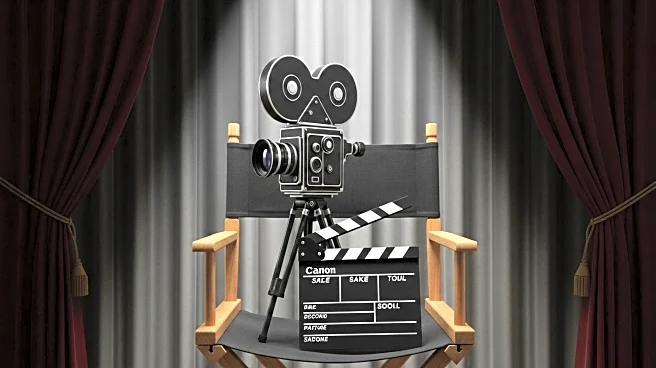What is the story about?
What's Happening?
Scarlett Johansson makes her directorial debut with 'Eleanor the Great,' a film that explores the complexities of a lie that spirals out of control. The movie stars June Squibb as Eleanor, a 95-year-old woman who, after moving to New York City, finds herself entangled in a web of deception. The story begins when Eleanor, attending a support group for Holocaust survivors, shares a fabricated story of survival based on her late friend Bessie's experiences. This lie catches the attention of Nina, an NYU student, who wishes to profile Eleanor for a journalism class. As Eleanor and Nina form a friendship, the lie becomes increasingly difficult to maintain. The film delves into themes of loneliness, grief, and the search for connection, with Squibb's performance being a standout element.
Why It's Important?
The film 'Eleanor the Great' is significant as it marks Scarlett Johansson's transition from acting to directing, showcasing her ability to handle complex narratives. The movie also highlights the talents of June Squibb, who, at 95, delivers a compelling performance that challenges age-related stereotypes in Hollywood. The film's exploration of moral ambiguity and the consequences of deception offers a reflective look at human relationships and the lengths people go to find solace and companionship. This narrative may resonate with audiences who appreciate character-driven stories that tackle ethical dilemmas and emotional depth.
What's Next?
As 'Eleanor the Great' enters limited release, its reception will likely influence Johansson's future projects as a director. The film's performance could also impact the types of roles offered to older actors like June Squibb, potentially encouraging more diverse and age-inclusive casting in Hollywood. Additionally, the film may spark discussions on the portrayal of historical trauma and the ethical responsibilities of storytelling, particularly in relation to sensitive topics like the Holocaust.
Beyond the Headlines
The film raises questions about the ethics of storytelling and the responsibility of those who share stories that are not their own. It also touches on the cultural significance of memory and history, particularly in the context of Jewish identity and the Holocaust. The narrative challenges viewers to consider the impact of personal narratives on collective memory and the potential consequences of misrepresenting historical truths.















